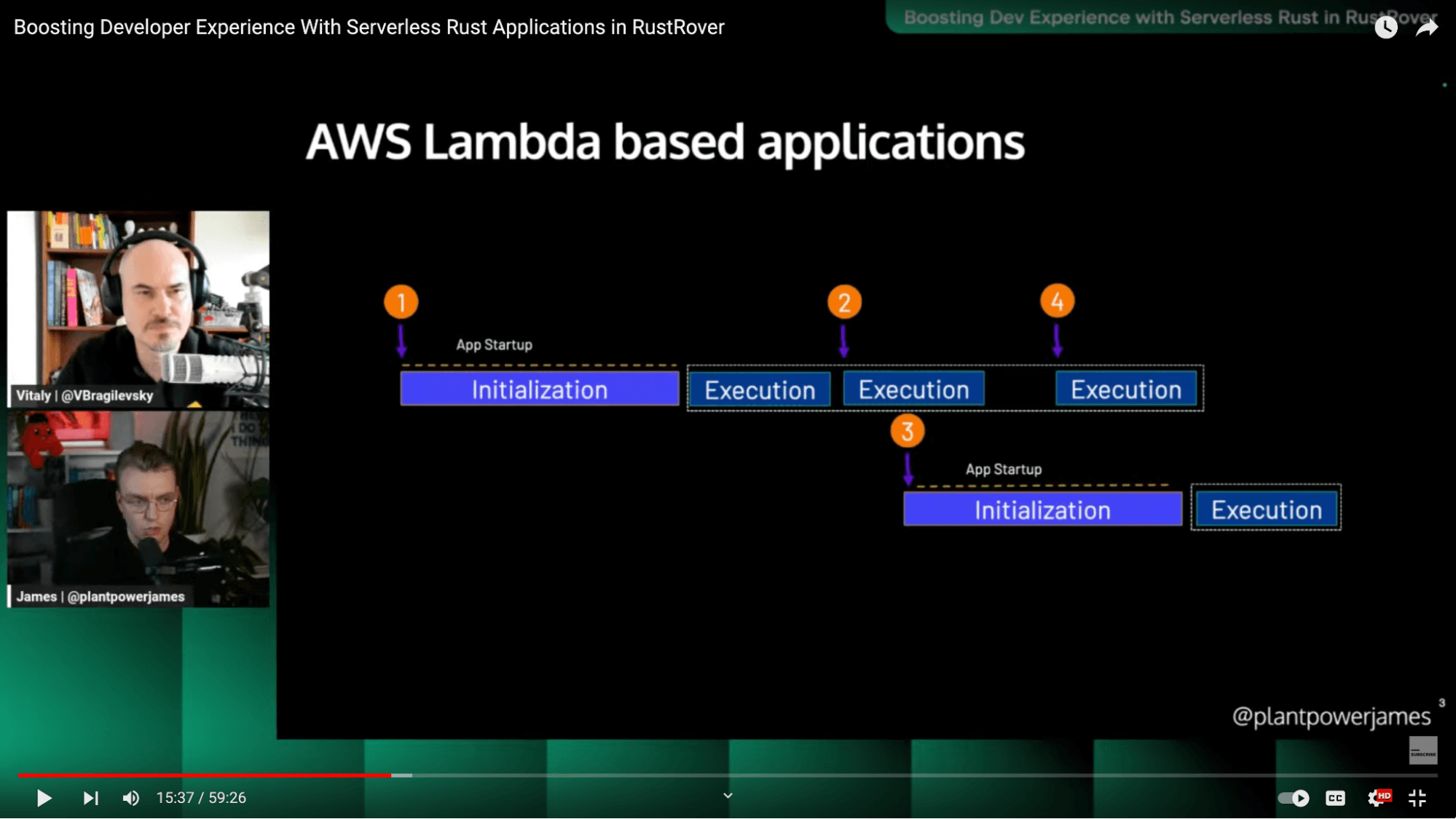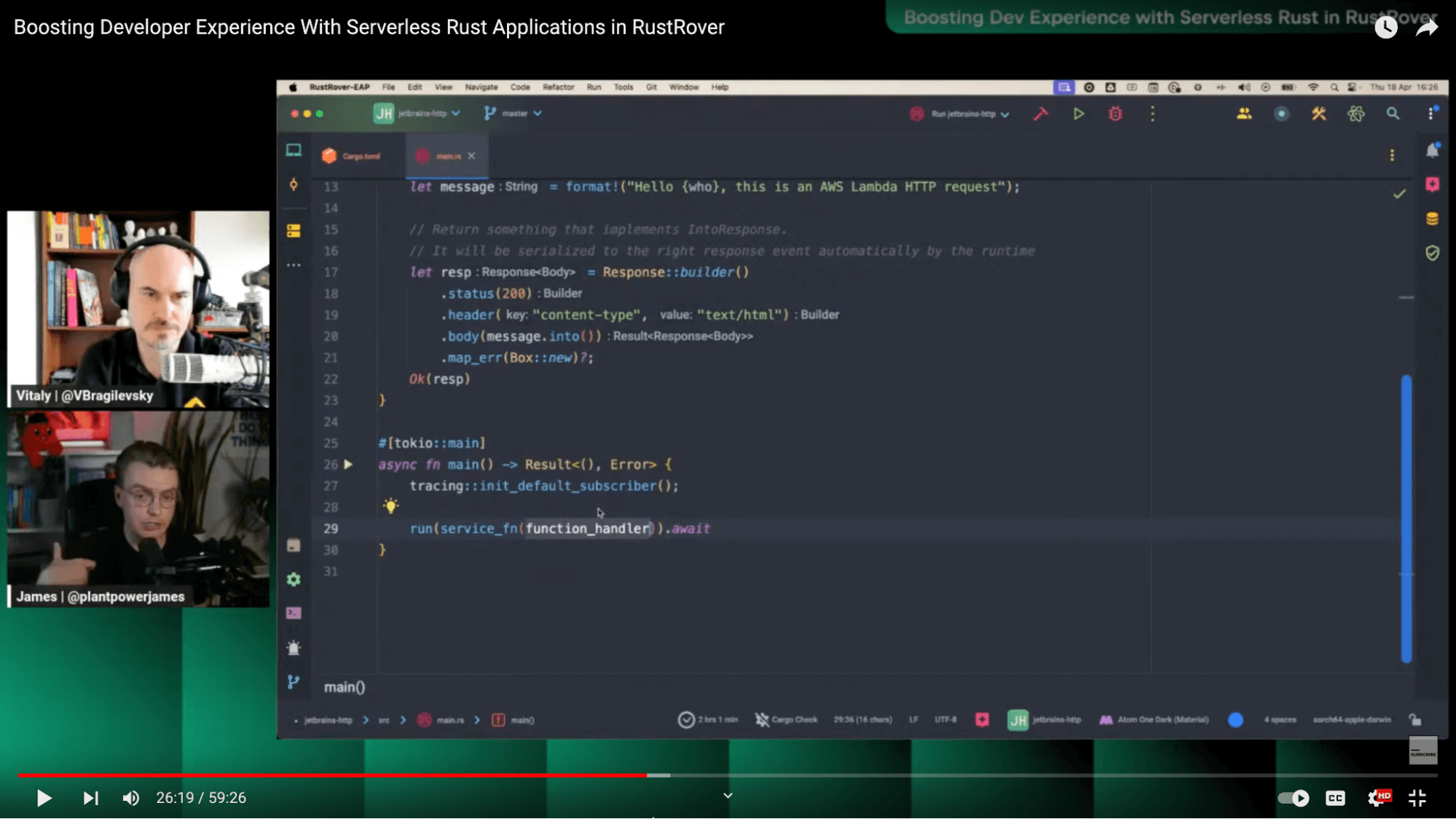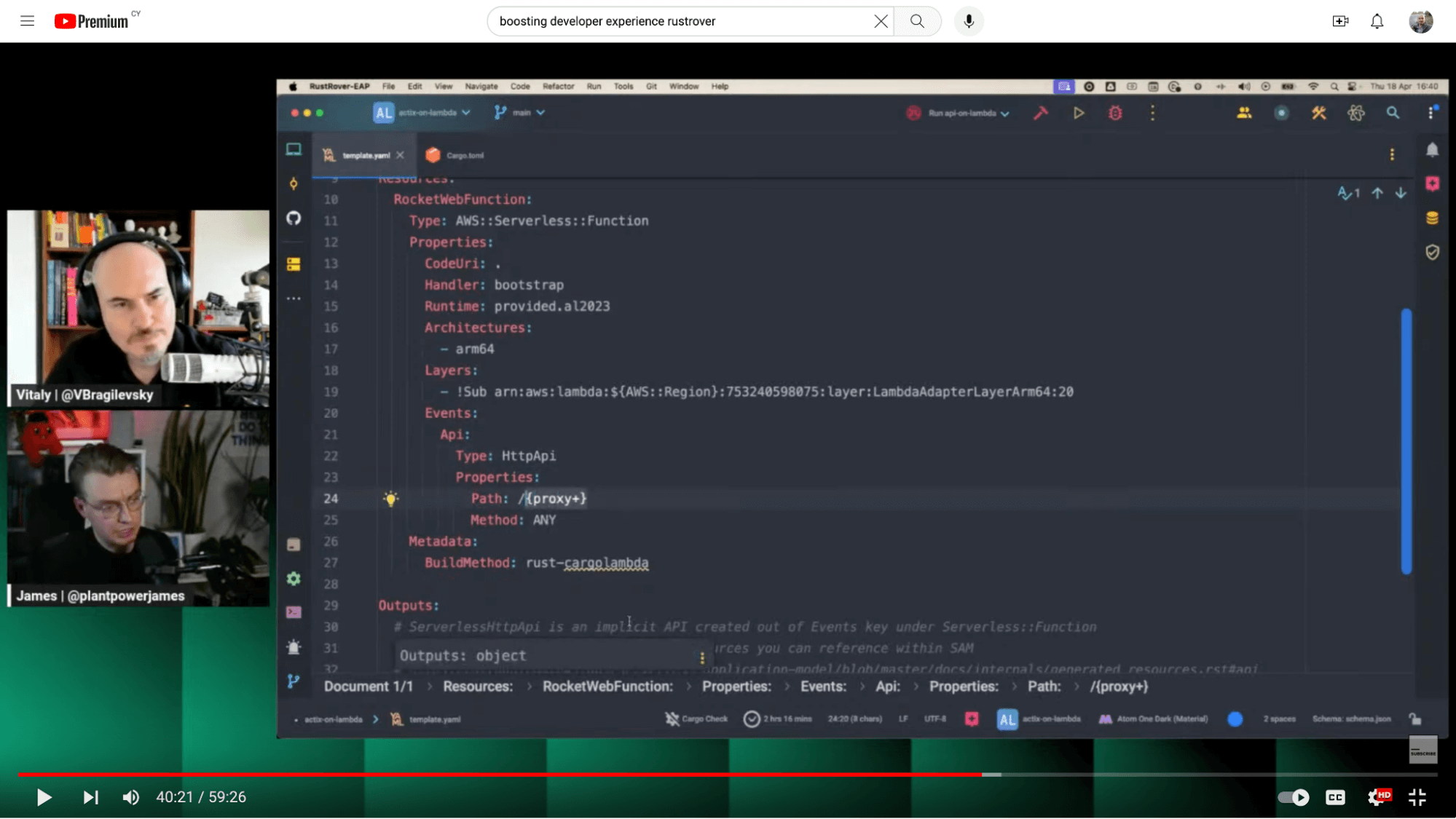
get in touch
Serverless technology paired with the Rust programming language represents an innovative way for developers to create efficient and scalable solutions, circumventing the usual complexities of infrastructure management. In a recent JetBrains livestream with James Eastham, a senior cloud architect at AWS, delved into the advantages of combining Rust with serverless architecture, particularly on AWS Lambda. Below, JetBrains shares valuable tips and insights from the session to improve your work on serverless Rust projects in RustRover.
Kickstarting Your Serverless Rust Journey
When embarking on your serverless Rust projects, cargo lambda is an essential CLI tool. It simplifies the creation, building, and deployment of Rust-based AWS Lambda functions. Start by initializing a new project with a command that prepares a template equipped with all necessary dependencies for an HTTP-based function, such as the lambda_http crate, which facilitates interaction with the AWS Lambda runtime.
Understanding AWS Lambda Function Lifecycle
Grasping the lifecycle of an AWS Lambda function is critical. Unlike standard applications, a Lambda function begins when the first request hits, creating a unique, resource-allocated execution environment for each request. This architecture is key for optimizing performance and managing costs effectively.

Crafting Your First AWS Lambda Function in Rust
The project template from cargo lambda provides a solid foundation with sample functions to expand upon. Generally, you begin with two functions in your Rust file: main and function_handler. The main function configures the runtime and any initial setup, such as database connections, while function_handler deals with the code executed per event, be it an HTTP request or an SQS queue message.

Testing and Deploying Locally
Serverless development benefits from the ability to conduct local testing before deployment. Utilizing cargo lambda’s watch and invoke commands, you can emulate your Lambda function’s behavior locally, enabling effective testing loops. Once satisfied, use cargo lambda build and cargo lambda deploy for deploying to AWS.
Maximizing Performance with Rust
A key theme in serverless is balancing performance, cost, and sustainability. Rust’s efficiency is a significant advantage, reducing memory and CPU usage, thus offering faster startup times and lower operational costs. This not only aids in cost reduction but also supports more sustainable software development by conserving computing resources.
Streamlining Serverless with AWS SAM
For more intricate setups involving multiple Lambda functions and other AWS services, the AWS Serverless Application Model (SAM) is invaluable. AWS SAM offers a simplified, high-level approach for defining and deploying serverless resources using YAML configurations and includes tools for easy local testing and deployment.
Going Framework-Free
Though web frameworks like Actix and Axum can be integrated within Lambda, another strategy is to design single-purpose Lambda functions for API endpoints. Managed via the API Gateway service, this method can lead to a cleaner, more scalable, and maintainable architecture.

Exploring Event-Driven Architectures
Serverless Rust applications are well-suited for event-driven architectures, responding to AWS SQS queues or Amazon SNS topics. The aws_lambda_events Rust crate facilitates handling various event sources with well-typed definitions, enhancing the event-driven development process.
Community Engagement and Ongoing Learning
As the serverless Rust ecosystem expands, platforms like Serverless Rust provide a hub for shared knowledge and collaboration. Whether you’re an experienced Rustacean or new to the language, engaging with the community and contributing to these resources can greatly accelerate your learning and the overall adoption of serverless Rust.
Conclusion
The potential for Rust in serverless computing is immense, especially with AWS Lambda leading the charge. The combination of Rust’s performance benefits and the operational simplicity of serverless architectures makes RustRover an excellent platform for developing cost-effective, environmentally friendly applications. Equip yourself with tools like cargo lambda and AWS SAM CLI, and start your serverless Rust journey today!
Blog resource: https://blog.jetbrains.com/rust/2024/04/26/boosting-dev-experience-with-serverless-rust-in-rustrover/




